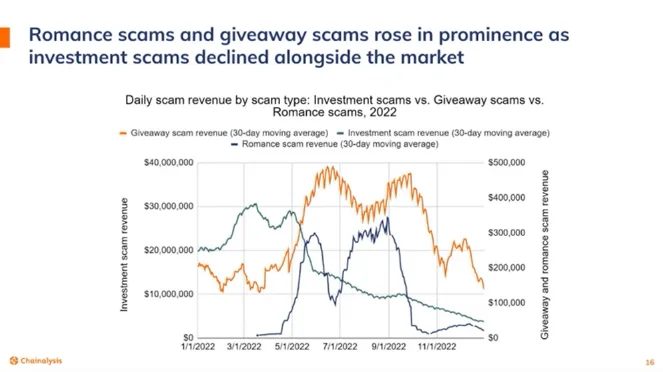Blockchain analysis firm Chainalysis have explained how some scammers continue to adapt and live despite the bear market, and the fact that scam revenue has decreased by 46% as a result of the crypto winter.

Eric Jardine, the cybercrimes research lead at blockchain analysis firm Chainalysis, explained how con artists adapt their techniques in response to changing market conditions during a webinar on consumer-targeted crypto crimes.

While the aggregate revenue from crypto scams decreased in 2022, according to Jardine, not all schemes behaved equally. He elaborated on why:
“One of the new innovations in this year’s report was sub-classing scams into types. And there, what we discovered was that not all scams behaved the same way in the context of the bear market.“
While the collapse of Terra in 2022 made crypto investors hesitant to participate, scammers resorted to new tactics, such as preying on greed with free giveaway scams and playing with people’s emotions with love scams. Jardine explained that:
“It’s suggestive here that there is an adaptation on the part of the scammers and market conditions make investment scams unlikely to be profitable; they may be substituting their tactics toward other scams that play on different emotional sense.“
According to data supplied by Jardine, as soon as investment scams become ineffective, romance and giveaway scams increase, indicating that con artists are not “repeating the same script over and over again” and can adapt to market conditions.
In addition to romance and gift scams, the cybercrime expert noted that multilevel marketing scams accounted for a significant portion of the $5.9 billion that was lost to fraud in 2022. Jardine demonstrated that among the biggest scams of the year, the hyperverse scam raked in over $1.3 billion, or about 22% of the total revenue generated by scams that year.
